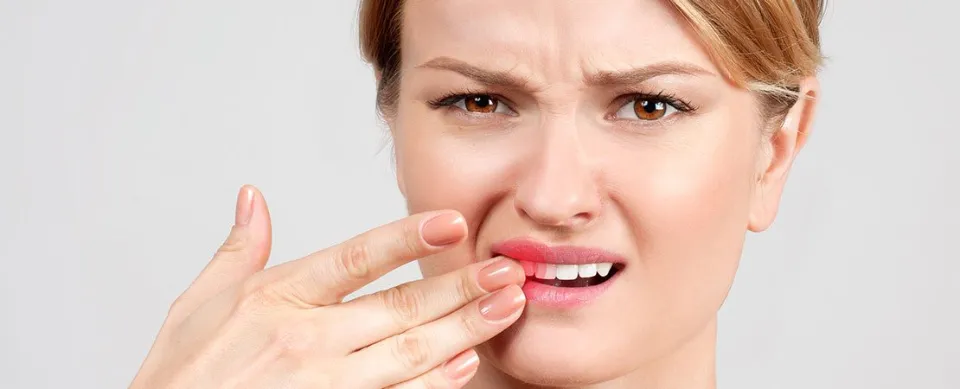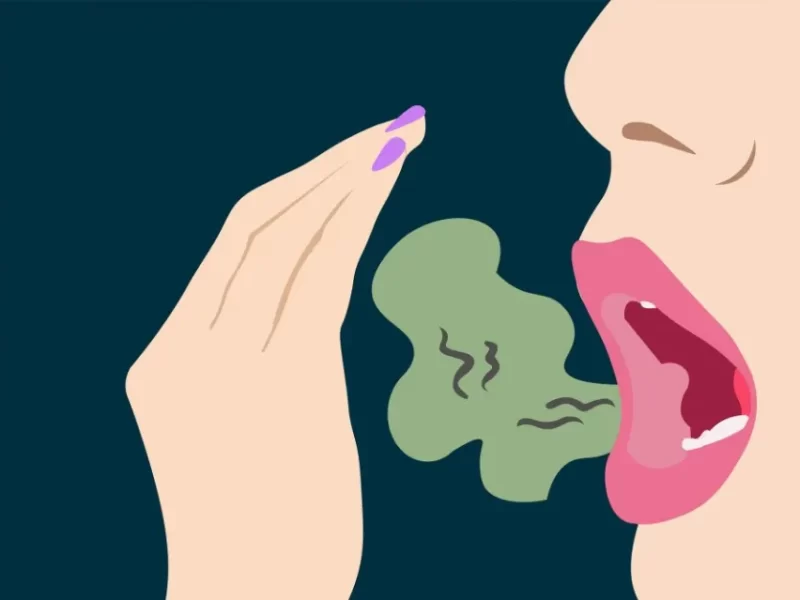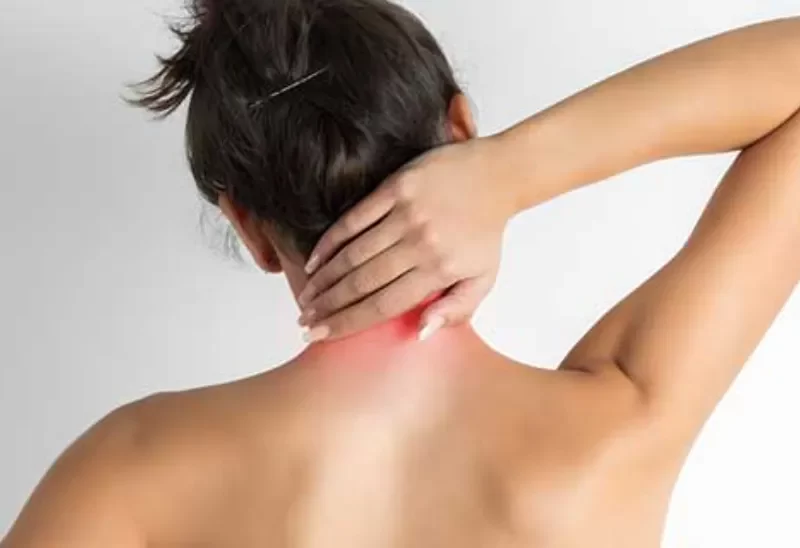Have you ever woken up and your teeth suddenly began to hurt seemingly out of the blue? Tooth pain can result from a variety of different conditions. While some are simple to fix on your own, others call for a visit to your general dentist.
Here are a few of the most typical root causes of tooth pain.
Why Do All My Teeth Hurt? (10+reasons)
Clench Your Jaw Tightly
Clenching is one of the main factors in tooth pain. When they are agitated, focused, or in tense situations, many people clench their jaws. Your teeth are under pressure when you clench your jaw that they were not designed to withstand. This poor coping mechanism can eventually make your teeth hurt or even become loose. You might be clenching your jaw if you experience toothaches after feeling stressed or angry. Your tooth pain may go away if you find other strategies for handling stress and emotions.
Grind Your Teeth Frequently
Another method of stress and anger management for some people is teeth grinding. Without being aware of it, many people grind their teeth at night. If you think you might be clenching or grinding your teeth while you sleep, discuss possible treatments with your dentist. Wearing a mouth guard to protect your teeth while you sleep is one of the simplest ways to stop toothaches that are brought on by grinding.
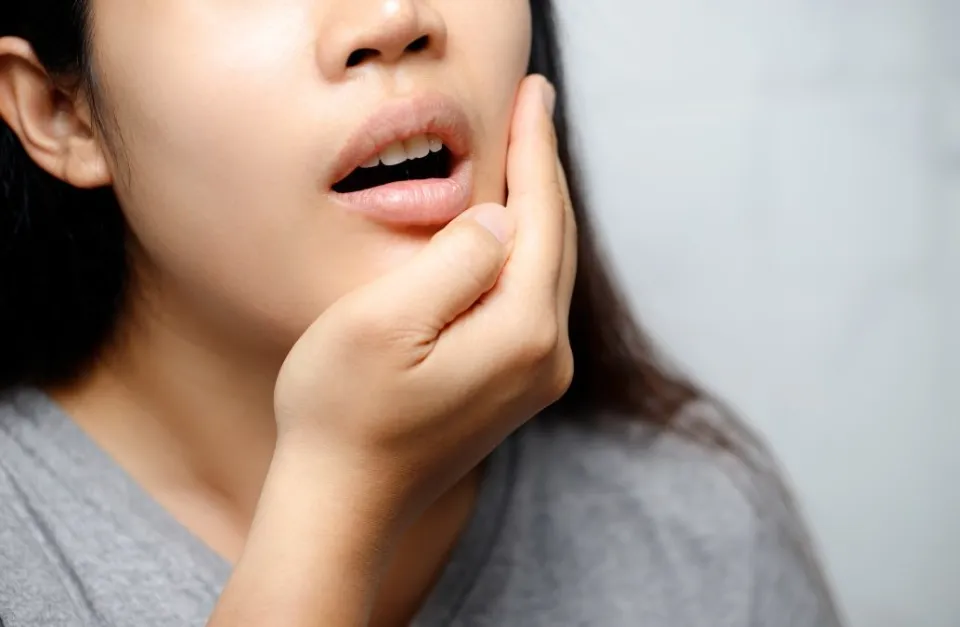
Rinse Your Mouth Too Often
Regular use of an oral rinse can help maintain good dental health. Overdoing it, however, can be detrimental. Tooth sensitivity can result from using mouthwash several times daily. This is due to the acid content in many mouthwashes, which erodes the middle layer of your teeth. Reduce the number of times you swish your mouthwash to just once or twice a day if you are experiencing tooth pain and find that you reach for mouthwash frequently throughout the day.
Lack of Water
Your teeth may suffer for a variety of reasons if you don’t get enough water. Following a meal, water will remove any leftover food particles stuck in your teeth. The presence of fluoride in the water in many residential areas aids in the strength maintenance of your teeth. Additionally, staying hydrated prevents you from suffering from the side effects of having a dry mouth. To maintain the health of your teeth and prevent tooth pain, drink more water.
Exercises Too Hard
One of the more unexpected causes of tooth pain is this. Studies show that endurance exercise can weaken your tooth enamel and increase your risk of developing cavities. Cavity risk increases with more rigorous exercise regimens. Though the precise cause of this is unknown, it might have something to do with how saliva production changes during exercise. Your rigorous training regimen may be the cause of tooth pain if you are preparing for a triathlon.
Have a Sinus Infection
Your upper back teeth’s back teeth hurting is a very typical sign of a sinus infection. Due to its proximity to your nasal passages, this makes sense. There is a good chance that you may have a sinus infection if you are experiencing tooth pain and congestion. In order to get the right care, you should visit your doctor.
Have TMJ Disorder
Your jaw can move up and down thanks to the temporomandibular joint, or TMJ. In a sense, this joint serves as the hinge between your jaw and skull. Your TMJ may not function properly in some areas due to conditions like arthritis or injury. When you chew, this may be very painful for your jaw and teeth. If you believe you may be having TMJ problems, consult your dentist.
Eat Too Many Acidic Foods
The enamel on your teeth can be ruined by foods with high acid content. Citrus, soda, coffee, and sweet candies are a few examples of these foods. Your teeth are more vulnerable to painful tooth decay or nerve exposure as the enamel on them wears away. If you consume a lot of acidic foods, reduce your intake and try eating a more balanced diet to avoid needless tooth pain.
Have a Baby
Your chance of developing gingivitis rises during pregnancy. The term “gingivitis” refers to gum inflammation, which can result in painful teeth and bleeding gums. The likelihood of developing cavities increases during pregnancy. You should keep a close eye on your dental health during pregnancy, and you might want to schedule an appointment with your dentist at this time.
Heart Problems
Tooth pain can occasionally be a sign of heart issues if it is present along with other symptoms. An upper body heart attack symptom is pain in the neck, shoulders, teeth, and jaw. Keep an eye on yourself if you also have pain in your mouth along with other symptoms like sweating, chest pain, heart palpitations, shortness of breath, or nausea.
Whitened Your Teeth Too Often
Some teeth whitening products can hurt your teeth. Two to three days into a tooth-whitening treatment, sensitivity may start to develop. Depending on your teeth, the tooth sensitivity may disappear quickly or may persist for a longer period of time. You might experience irritated gums as a result of teeth whitening. Consult your family dentist if you’re in a lot of pain during your teeth-whitening procedure. They may advise you to discontinue the procedure or change to a whitening agent that is less abrasive to your teeth.
Nerve Pain
Trigeminal neuralgia is a condition that may occasionally but infrequently cause tooth pain. This particular kind of nerve damage results in persistent nerve pain in your head that occasionally resembles a toothache. It’s possible to experience pain while eating, drinking, or brushing your teeth. Even though it’s a rare condition, it might be worthwhile to see a doctor if you experience this kind of persistent pain.
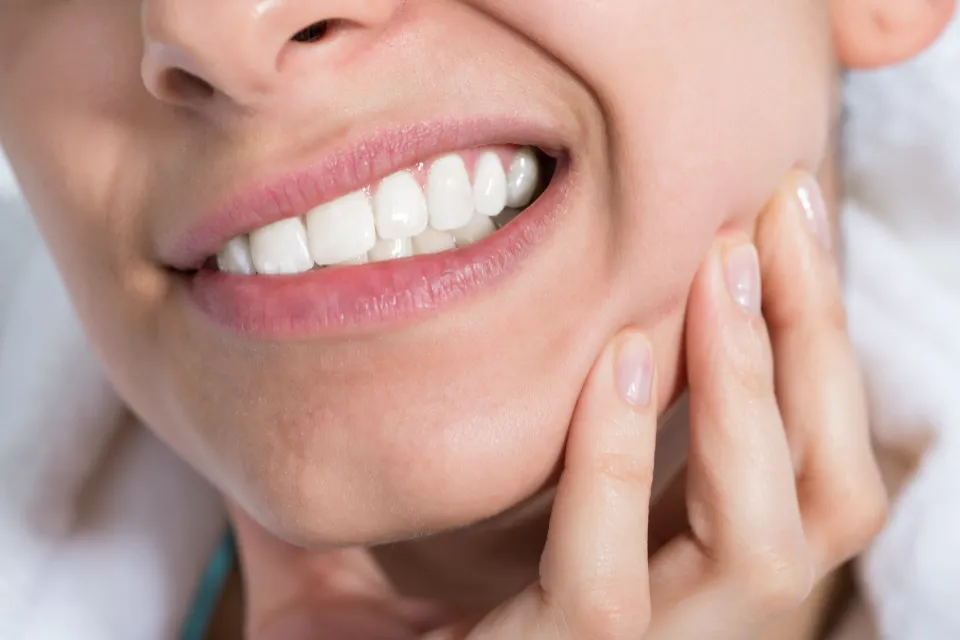
Gums Are Receding
Your gums guard the nerves in your teeth. In order to expose those nerves as they recede, they pull back, which makes the teeth sensitive and painful. Receding gums can be a sign of something more serious, like gum disease, or they can be caused by brushing too vigorously for an extended period of time. Bad breath, bleeding gums when you brush, sores in the mouth, and pus are additional signs of gum disease. Make an appointment to see your dentist if any of these symptoms appear along with your tooth pain.
Oral Cancer
Oral cancer symptoms include persistent tooth and mouth pain. In order for your dentist to perform an oral cancer check, you should let them know if your mouth or teeth hurt and the pain does not go away. You should also mention any unusual bumps or discolored patches you may have noticed.
Home Remedies for Teeth Hurt
- Extra Soft Toothbrush Bristles: When brushing your teeth, go for a gentle cleaning technique. Use a replacement brush head made especially for teeth and gums that are sensitive if you’re brushing with an electric toothbrush. Together with the Oral-B iO Gentle Care Brush Head, which has up to 4000 high density filaments, the Oral-B iO Series 9 Electric Toothbrush provides a more effective and gentle clean. Also included in the Oral-B iO9 is a Super Sensitive Mode, which gently removes plaque while shielding teeth and gums from sensitivity.
- Floss that’s Gentle on Gums: Designed to be softer and gentler on gums, Oral-B Glide Pro-Health Comfort Plus Floss. With twice the softness of Oral-B Glide Original floss, Oral-B Glide Pro-Health Comfort Plus floss slides between crowded teeth without fraying.
- Toothpaste for Sensitive Teeth: Add a stannous fluoride toothpaste, such as Crest Pro-Health Sensitive & Enamel Shield Toothpaste, to your oral care regimen for comprehensive protection against painful tooth sensitivity, cavities, plaque, gingivitis, tartar, and other oral health problems.
Final Thoughts
A general dentist can assist you in locating and resolving the issue if you are having tooth pain or any other dental health problems.

